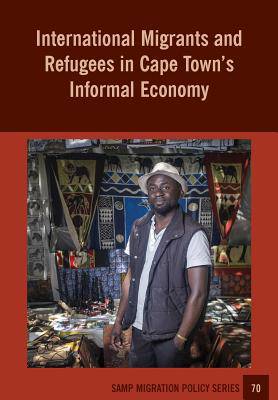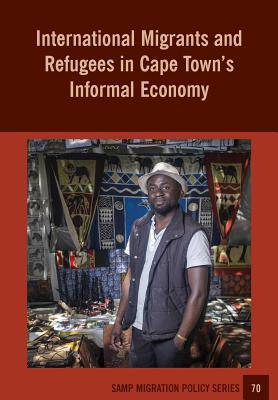
- Afhalen na 1 uur in een winkel met voorraad
- Gratis thuislevering in België vanaf € 30
- Ruim aanbod met 7 miljoen producten
- Afhalen na 1 uur in een winkel met voorraad
- Gratis thuislevering in België vanaf € 30
- Ruim aanbod met 7 miljoen producten
Zoeken
International Migrants and Refugees in Cape Townís Informal Economy
Godfrey Tawodzera, Abel Chikanda
Paperback | Engels
€ 27,95
+ 55 punten
Omschrijving
This is report is the most comprehensive study yet of the contribution of migrant and refugee entrepreneurs to Cape Town's local economy. The survey of over 500 entrepreneurs engaged in trade, services and manufacturing in different areas of the city dispels some of the more prevalent myths that often attach to the activities of migrants. The vast majority are not "illegal foreigners", but have a legal right to be in South Africa and to run a business. Most are highly motivated individuals who enter the informal economy to earn revenue to support themselves, their families, and because they have a strong entrepreneurial motivation. Contrary to the claims of South African competitors, the vast majority are not successful because they are engaged in shadowy business practices. What emerges from the survey is that while migrant entrepreneurs undoubtedly have strong social networks, their businesses are highly individualistic in terms of organization, ownership and activity in a competitive business environment. This report demonstrates their positive economic contributions to Cape Town and examines the challenges they face in running a successful business operation in the city. It goes beyond the rhetoric of inclusion to demonstrate with hard evidence exactly why migrant and refugee entrepreneurs should be accepted as an integral and valuable part of the local economy.
Specificaties
Betrokkenen
- Auteur(s):
- Uitgeverij:
Inhoud
- Aantal bladzijden:
- 62
- Taal:
- Engels
Eigenschappen
- Productcode (EAN):
- 9781920596156
- Verschijningsdatum:
- 13/06/2016
- Uitvoering:
- Paperback
- Formaat:
- Trade paperback (VS)
- Afmetingen:
- 170 mm x 244 mm
- Gewicht:
- 113 g

Alleen bij Standaard Boekhandel
+ 55 punten op je klantenkaart van Standaard Boekhandel
Beoordelingen
We publiceren alleen reviews die voldoen aan de voorwaarden voor reviews. Bekijk onze voorwaarden voor reviews.











